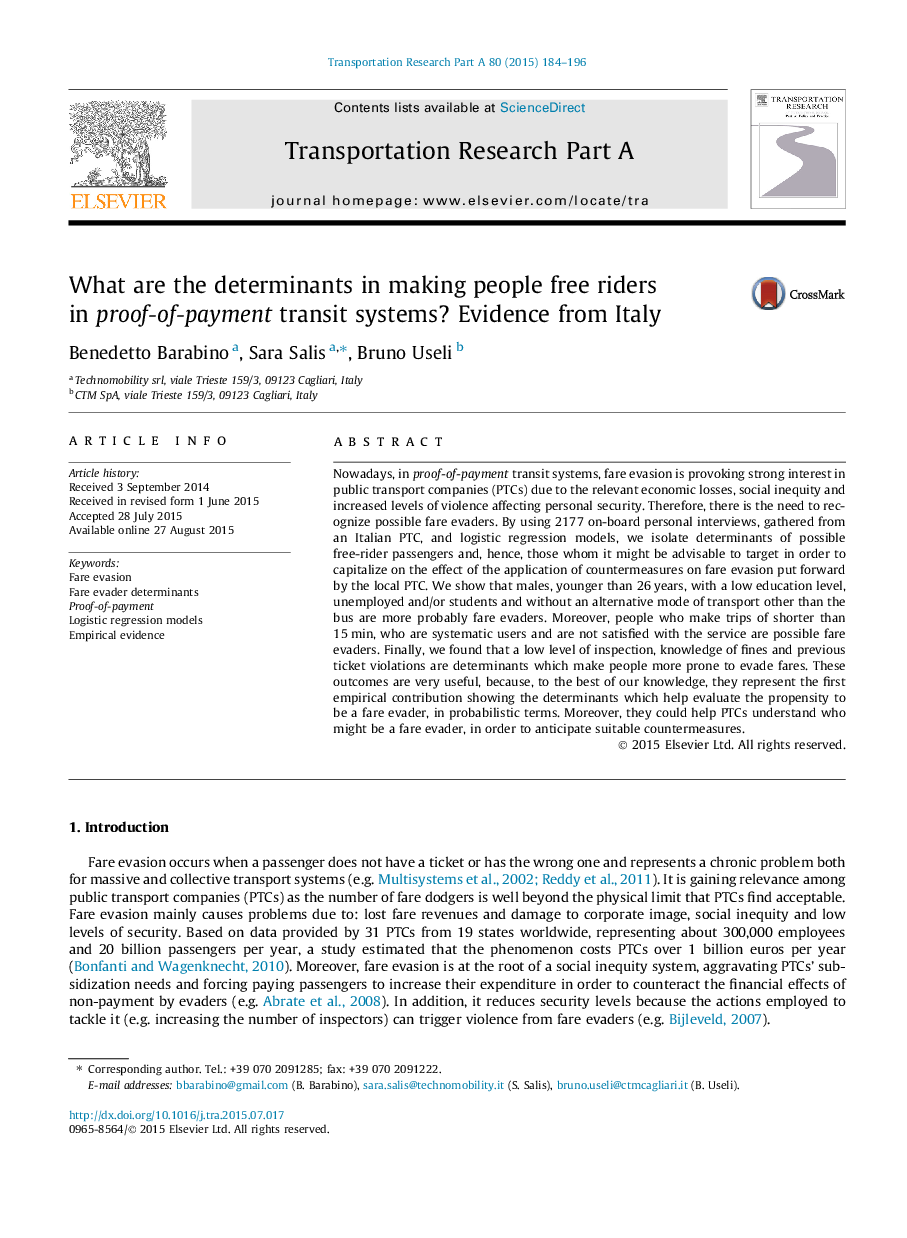| Article ID | Journal | Published Year | Pages | File Type |
|---|---|---|---|---|
| 6781178 | Transportation Research Part A: Policy and Practice | 2015 | 13 Pages |
Abstract
Nowadays, in proof-of-payment transit systems, fare evasion is provoking strong interest in public transport companies (PTCs) due to the relevant economic losses, social inequity and increased levels of violence affecting personal security. Therefore, there is the need to recognize possible fare evaders. By using 2177 on-board personal interviews, gathered from an Italian PTC, and logistic regression models, we isolate determinants of possible free-rider passengers and, hence, those whom it might be advisable to target in order to capitalize on the effect of the application of countermeasures on fare evasion put forward by the local PTC. We show that males, younger than 26Â years, with a low education level, unemployed and/or students and without an alternative mode of transport other than the bus are more probably fare evaders. Moreover, people who make trips of shorter than 15Â min, who are systematic users and are not satisfied with the service are possible fare evaders. Finally, we found that a low level of inspection, knowledge of fines and previous ticket violations are determinants which make people more prone to evade fares. These outcomes are very useful, because, to the best of our knowledge, they represent the first empirical contribution showing the determinants which help evaluate the propensity to be a fare evader, in probabilistic terms. Moreover, they could help PTCs understand who might be a fare evader, in order to anticipate suitable countermeasures.
Related Topics
Physical Sciences and Engineering
Engineering
Civil and Structural Engineering
Authors
Benedetto Barabino, Sara Salis, Bruno Useli,
